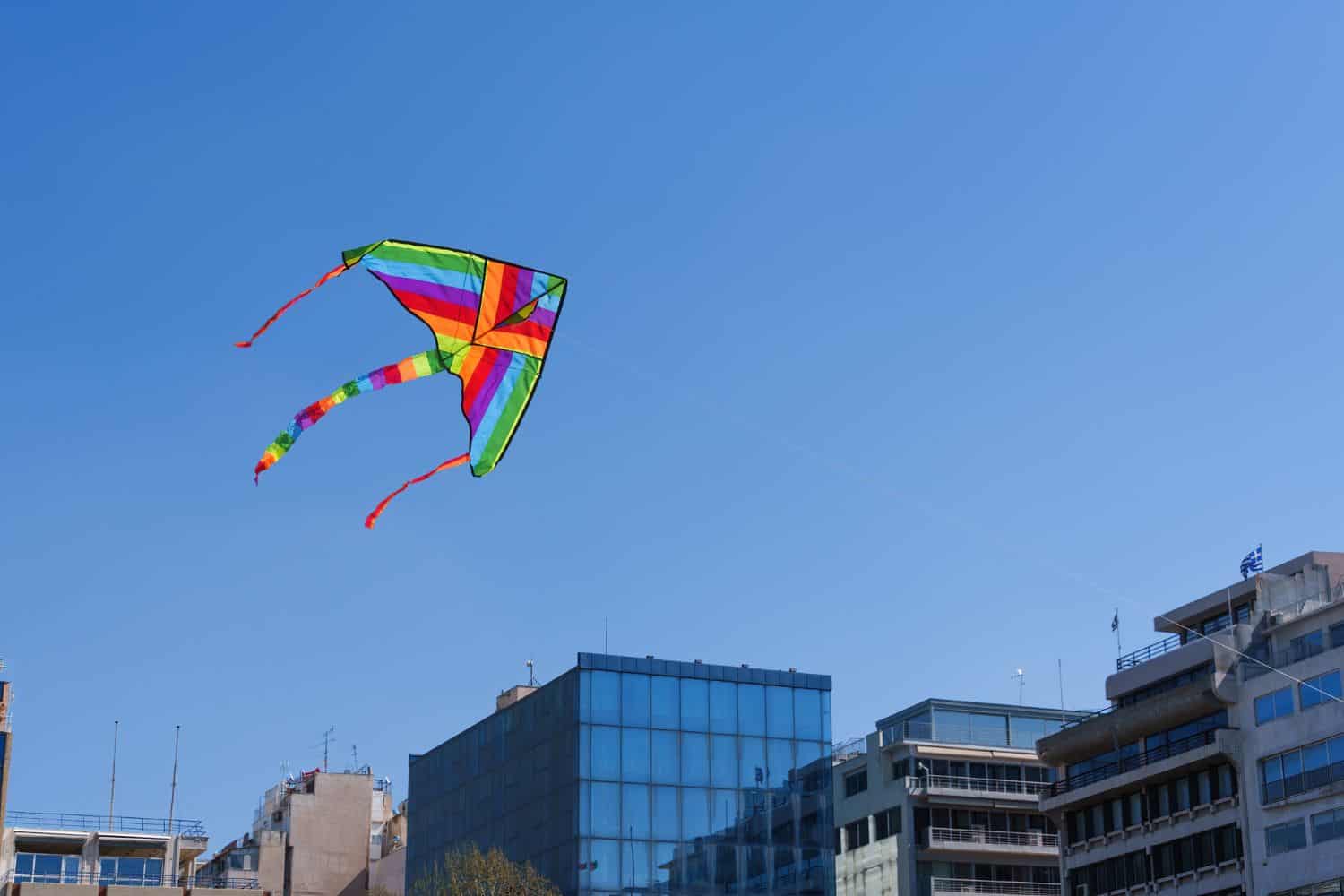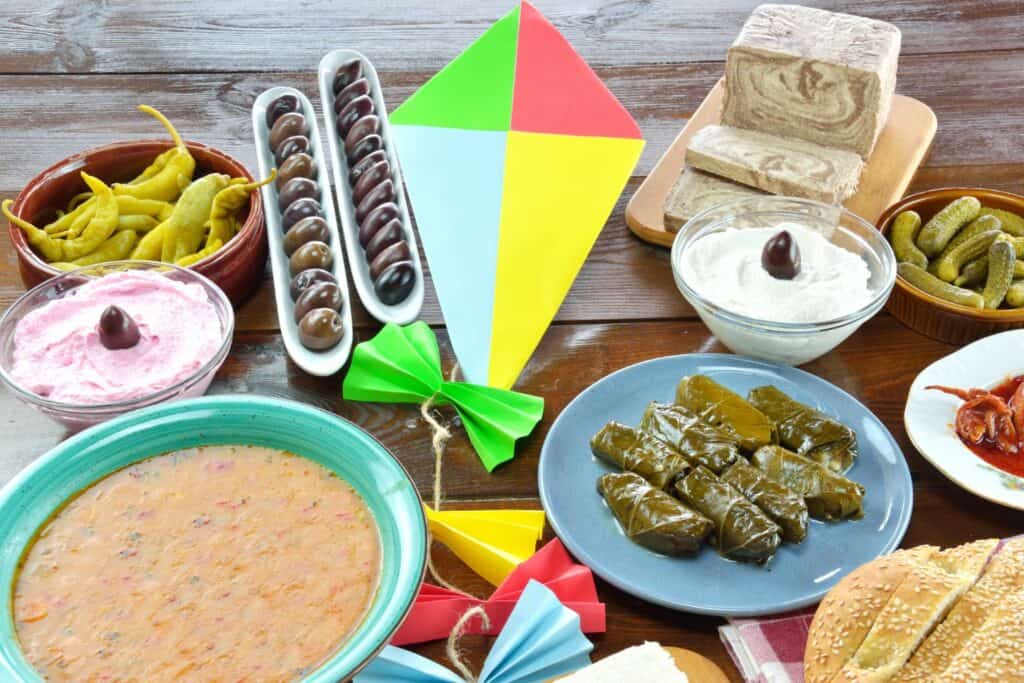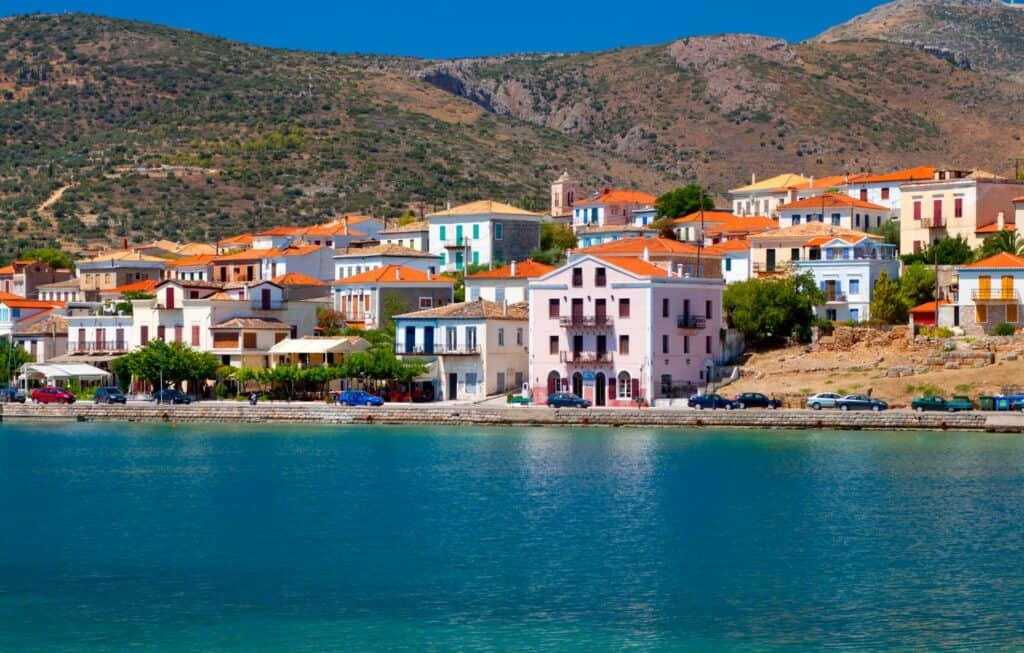Flour War: The Stunning Greek Holi-Like Way to Celebrate Clean Monday

Updated On: November 08, 2023 by Noha Basiouny
In our world today, around 300 million people in over 20 countries follow the Orthodox Church, with the majority concentrated in Eastern Europe. They all share the same beliefs and follow the same rituals. Yet, it is their way of performing them that is exceptionally unique.
Greece, where about 98% of the population identifies themselves as Orthodox Christians, is a pro of this. Besides the incredible Greek history, stunning nature, and substantial contribution to the intellectual development of our world, Greece is also iconic when it comes to celebrating important religious events. One of these unique events is the Flour War.
Clean Monday
One such event that is uniquely celebrated in Greece is Clean Monday (or Pure Monday). This day marks the beginning of the Great Lent, the most important fasting season in Eastern Christianity. Typically lasting 40 days, the Great Lent ends with Pascha or Easter, the greatest feast of the year.
Unlike the Orthodox Christmas that is observed annually on 7 January, Clean Monday does not have a fixed date but is instead a moveable feast. That means it changes from one year to another, based on some astronomical calculations. With that said, Clean Monday usually falls somewhere in February or March.
Since this period marks the end of winter and the beginning of spring, Clean Monday in Greece is mostly celebrated outdoors. The Greeks usually gather around and socialise with family and friends. They go on lively picnics and excursions to enjoy the warm breezy weather, sing, dance, and, well, fly kites.

Let’s also not forget about the most important part of any celebration: food. On Clean Monday, the Greeks eat lots of delicious seafood that primarily constitutes shellfish, molluscs, shrimp, cuttlefish, and octopus. They also consume Greek bread, beans, and rice-stuffed vine leaf rolls with deliciously savoury dipping sauces, wine, and desserts.
Additionally, Clean Monday marks the end of the carnival season in Greece. Known as Apokries, this three-week season is a lively winter holiday period that takes place everywhere nationwide, from village schools and local halls to large squares and public venues.
During Apokries, the Greeks throw a lot of parties, organise public events, go out, get along, sing, dance, and enjoy so much delicious food.
Flour war (the what)
This is by far how people in most parts of Greece celebrate Clean Monday. But those who live in the beautiful, teeny-tiny town of Galaxidi in Central Greece welcome the long fasting season in a more iconically remarkable, lively, though quite messy but surely astonishing, way.
That is the Alevromountzouromata or the flour war!
Like the Hindu festival Holi, residents of the Galaxidi town celebrate Clean Monday by indulging in a fun war where they throw coloured flour at one another while singing and dancing. Besides the tremendous amount of fun this costume brings along, it is directly related to the purpose of the Great Lent itself.
To understand that, let’s take a step back and learn a little about the Great Lent in Christianity.
The Great Lent
In Eastern Christianity, God raised Jesus from the dead three days after his burial. That day is known as Resurrection Sunday. To have a metaphorically similar experience, Orthodox Christians fast to get rid of their sins, clean their souls, strengthen their beliefs, and enter a state of resurrection, like the one Jesus had.
This state should typically be achieved by the end of the Great Lent, which is crowned with the great feast of Pascha or Easter as commonly known. This is the holiest festival of the year in which Christians commemorate the resurrection of Jesus from the dead.
So yes, this fasting season, the Great Lent, is like a preparation period for the faithful to uplift their spirits. That is why the first day is called Clean Monday or Pure Monday.
As we mentioned earlier, it starts sometime in February or March and lasts 40 days. Christians fast by following a vegetarian-like diet, meaning they do not consume any animal products, from meat and chicken to dairy and eggs.
Galaxidi

Galaxidi is a small beautiful harbour city in Central Greece, around 200 km northwest of Athens. With an area of 126.088 km², Galaxidi is home to a little over 3000 people. Besides the stunning landscape and the exciting history, this town is distinct for the flour war, the locals’ unique way to end the carnival season and welcome the Great Lent.
Although it is unknown how it originated, the flour war has been Galaxidi’s custom for ages. Hundreds of locals and tourists flock to the town every spring to spend an entire afternoon throwing coloured flour at one another, in resemblance to replacing sins with good deeds.
Such an event is a part of the town’s identity; it is organised by the local authorities and participated in by everyone. As of 2023, Clean Monday was observed on 27 February and was well celebrated for the first time after a two-year hiatus due to COVID-19 restrictions.
Flour war (the how-to)
So how does this flour war festival go, anyway?
Well, after a good night’s sleep and a nice breakfast with family, the residents of Galaxidi get ready for the flour war by wearing old clothes, which they do not mind getting ruined in the battle. They paint their faces with blue paint, ochre, ash, or charcoal, and many people also bring cloth bags which they fill with coloured flour.
That said, some people, most probably tourists, like to wear protective uniforms on top of their clothes. For some, myself included, this takes away a big deal of fun that comes from getting colourfully dirty and the satisfaction of cleaning all that dirt off afterwards.
Yet, putting on goggles is recommended since eyes do burn like hell (or onion) when flour gets in them. Wearing face masks is also a good idea, as breathing sometimes becomes challenging, especially when the fight heats up.
Moving on, when everyone is dressed the way they like, they head to a place predefined by the local authority or the town council. This marks the beginning spot of the event. This is also where large quantities of coloured flour are distributed to those who were running short on time and could not get flour on their own.
When the flour is distributed and everyone is well armed, they start marching toward the harbour road, which soon turns into a war zone. On their way there, locals sing, dance, play the drums, light fires, and take blurry photos.
Buildings in the area are usually covered with large plastic sheets for protection. The harbour road itself is divided into two sides: one for the festival participants and the other for spectators. Those are probably tourists who happen to have just the outfit they have on and want to stay looking neat when going back home.
No participant is allowed to go to the spectator zone. But, if one spectator makes it to the war zone, they will soon be swept by the crowd like a car washed away by a tsunami. Before they know it, they will find themselves participating in the fight not only because it is too crowded to go back but also because it is so mesmerising to stay in.
Participants keep throwing each other with coloured flour until each one of them turns into a human rainbow. The war officially ends when they run out of flour, but the festival does not. So they leave the harbour road and head to local bars for more dancing and singing.
The flour war is an extraordinarily fun festival that is not held anywhere in the country but in Galaxidi. So, if you ever consider visiting Greece and want to indulge in an exceptional, genuine Greek experience, make sure you schedule your trip around Clean Monday. Galaxidi is only a few hours drive or a short flight from Athens.
Do not forget to check our full guide for a fantastic vacation in iconic Greece. If you’re looking for something outside the country but still want the European experience, these European city breaks may help you plan a luxurious vacation.






